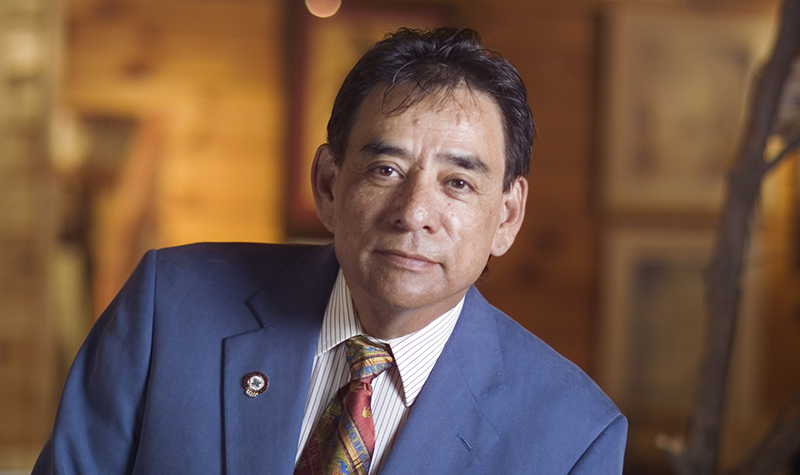
- Details
- By Native News Online Staff
David M. Gipp (Hunkpapa Lakota), a citizen of the Standing Rock Sioux Tribe, who served as the president of United Tribes Technical College (UTTC) in Bismarck, North Dakota for 37 years began his journey to the spirit world on Friday. He was 74
Gipp was a trailblazing educator and lifelong advocate for Native American higher education. Born in Fort Yates, North Dakota, Gipp earned a degree in political science from the University of North Dakota (UND) in 1969. While at UND, he founded the American Indian Student Association, laying the groundwork for increased Native student engagement and support at the university.
In 1977, Gipp became president of UTTC)—a role he held for 37 years. Under his leadership, UTTC evolved from an unaccredited workforce training center into a fully accredited institution offering associate and bachelor’s degrees, career and technical education, and workforce development. His vision expanded both the college’s physical campus and its reach, serving students from more than 75 federally recognized tribes.
Gipp was also a key architect of the national tribal college movement. In the 1970s, he served as the first full-time executive director of the American Indian Higher Education Consortium (AIHEC), where he helped shape critical legislation, including the Tribally Controlled Community College Assistance Act of 1978, which provided foundational federal support for tribal colleges.
Beyond UTTC and AIHEC, Gipp held leadership roles in numerous national organizations, including the American Indian College Fund, the National Indian Education Association, and the U.S. Department of Labor’s Native American Employment and Training Council. He also served nearly two decades on the Native Nations Institute’s International Advisory Council at the University of Arizona.
In recognition of his lifelong dedication, Gipp was awarded an honorary doctorate from North Dakota State University in 1991. He passed away on September 11, 2020, at the age of 74. His legacy endures through efforts like the Dr. David M. Gipp Scholarship Endowment at UND, which supports Native students pursuing careers in medicine.
David Gipp’s life was defined by an unwavering commitment to expanding educational access, empowering tribal communities, and advocating for equity in Native higher education.
More Stories Like This
Hanging a Red Dress for Christmas: MMIP, Native Higher Education, and Hope for a Better New YearNative Students Can Win $5,000 Scholarship, International Distribution in Pendleton Design Contest
American Indian College Fund Raises Alarm Over Plan to Shift Native Programs Away From the Dept. of Education
MacKenzie Scott Foundation Gives $5 Million Contribution to Little Priest Tribal College
Tribal Leaders Push Back on Dismantling of U.S. Department of Education
Help us defend tribal sovereignty.
At Native News Online, our mission is rooted in telling the stories that strengthen sovereignty and uplift Indigenous voices — not just at year’s end, but every single day.
Because of your generosity last year, we were able to keep our reporters on the ground in tribal communities, at national gatherings and in the halls of Congress — covering the issues that matter most to Indian Country: sovereignty, culture, education, health and economic opportunity.
That support sustained us through a tough year in 2025. Now, as we look to the year ahead, we need your help right now to ensure warrior journalism remains strong — reporting that defends tribal sovereignty, amplifies Native truth, and holds power accountable.
 The stakes couldn't be higher. Your support keeps Native voices heard, Native stories told and Native sovereignty defended.
The stakes couldn't be higher. Your support keeps Native voices heard, Native stories told and Native sovereignty defended.
Stand with Warrior Journalism today.
Levi Rickert (Potawatomi), Editor & Publisher


